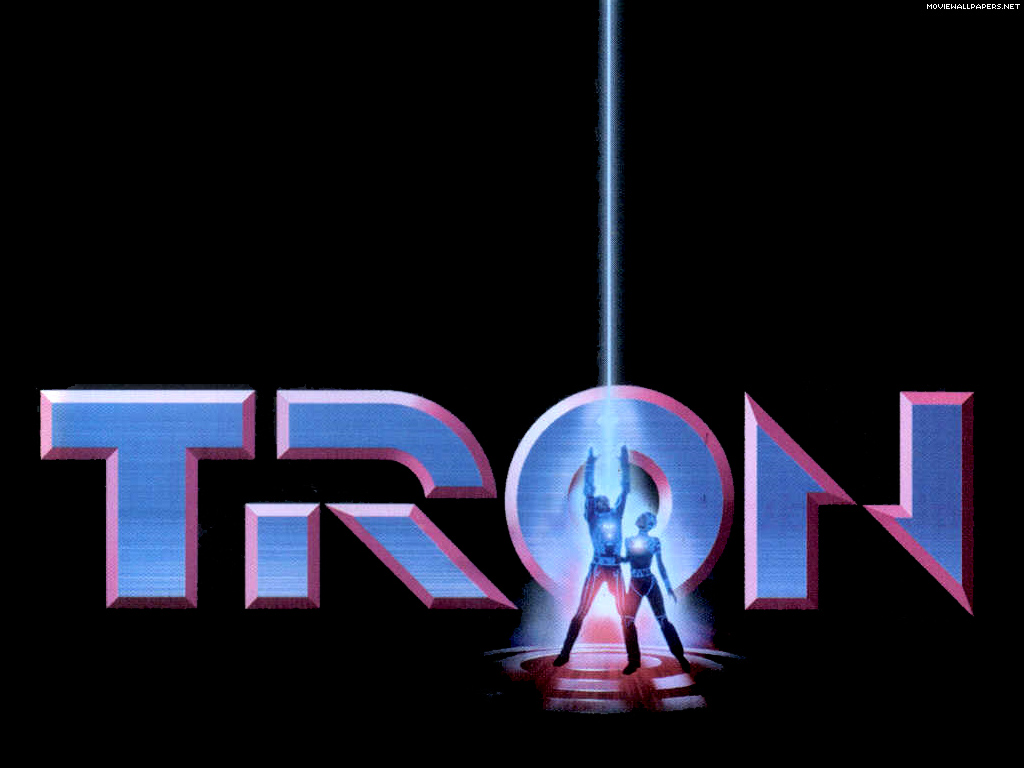
The thing with watching movies only when you're tired, packing, or falling asleep is you just put on movies you know and love. The thing with writing down reactions to movies you already know and love is, you're basically listing all the things you already know and love about the thing. And that's not always very interesting.
So instead I'm going to say something about what I consider a missed opportunity in TRON. The script moves quickly with a pleasing stop-and-go pace through this magical world, this gorgeous surreal realm that still, twenty-five years later, remains inimitable. As we go, there are all these little hints about the deeper social world of the System, of people's personal relationship to their Users (a wildly religious community where everybody has their Own Personal God is fascinatingly humanistic), and of strange creatures and terrains. Time passes impossibly fast, and rightly so. And programs are, well, programmed. The grand Master Control Program -- evil mortal (program) dabbling with the wisdom and agency of a god (user) -- has developed a sense of awareness and ambition. Specifically, he's developed a hunger for power -- and to a program, as to a human, the only ways to real power are energy, information, and social control.
Meanwhile there's Tron, a knight errant (specialized program) sent here by the gods (or a god, the "user" Alan-1) to defeat the dragon (to watchdog & keep in check the MCP), and as such he has a certain brashness in his nature -- but he's still just a program, and occasionally this shows in brilliant and sneaky ways. Sometimes you get these hints from moments in the story, notions sticking out, like that ideas are viral or that freewill doesn't exist, but they're always glossed over, skirted around, not really consistent. My one wish is that these themes and character development points had been given their due. Go deeper into the characters of Yori and Demond and Ram and Clu, and especially Tron and Flynn and Sark, and let us see a world where a lack of freewill is taken for granted. It is a world where the status quo is being shaken up by some new forces (a power-hungry dragon/program reappropriating other programs for games and consumption; a free-agent demigod/User roaming the planes; a hero/program made to be a wildcard and outsmart the dragon/program) and all the programs around these characters are being pushed outside their structures and boundaries -- they are being forced to adapt to new scenarios and, in essence, grow. Not to put too fine a point on it, but this is the heart of all drama, and TRON has such a beautiful, stripped-down, minimalistic one-time-use world for us to explore that with. The same thing is touched upon in Spielberg's A.I., a little more deftly, in characters like Teddy and most notably Gigolo Joe, the sexbot who finds himself custodian to a small boy who wants to be real, in a world where humans have begun to turn on their creations in wrath -- another series of wildcard forces causing a departure from the status quo. What happens to our characters when we rock the boat?
TRON never quite goes there all the way. It definitely dips its toes in those waters, but it really missed a grand opportunity to dive right in. I'm not saying it should have beaten the audience over the head with a sign reading "Hey, Isn't Freewill Neat? And Look On As These Sleepwalkers Wake Up And Start Living." (Dark City did that about as well as it can be done; The Matrix less so.) I don't think it needs to be shoehorned in at all. Quite the opposite, actually; the world here is such that it's almost unnatural not to have a subplot of programs adapting and evolving and becoming self-aware as Flynn and Tron journey through their midst, and with just some small notes of consistency and deeper characterization -- and no plot changes whatsoever -- the world and story of TRON might have been magnitudes richer and more wondrous. Or so I like to imagine.

No comments:
Post a Comment